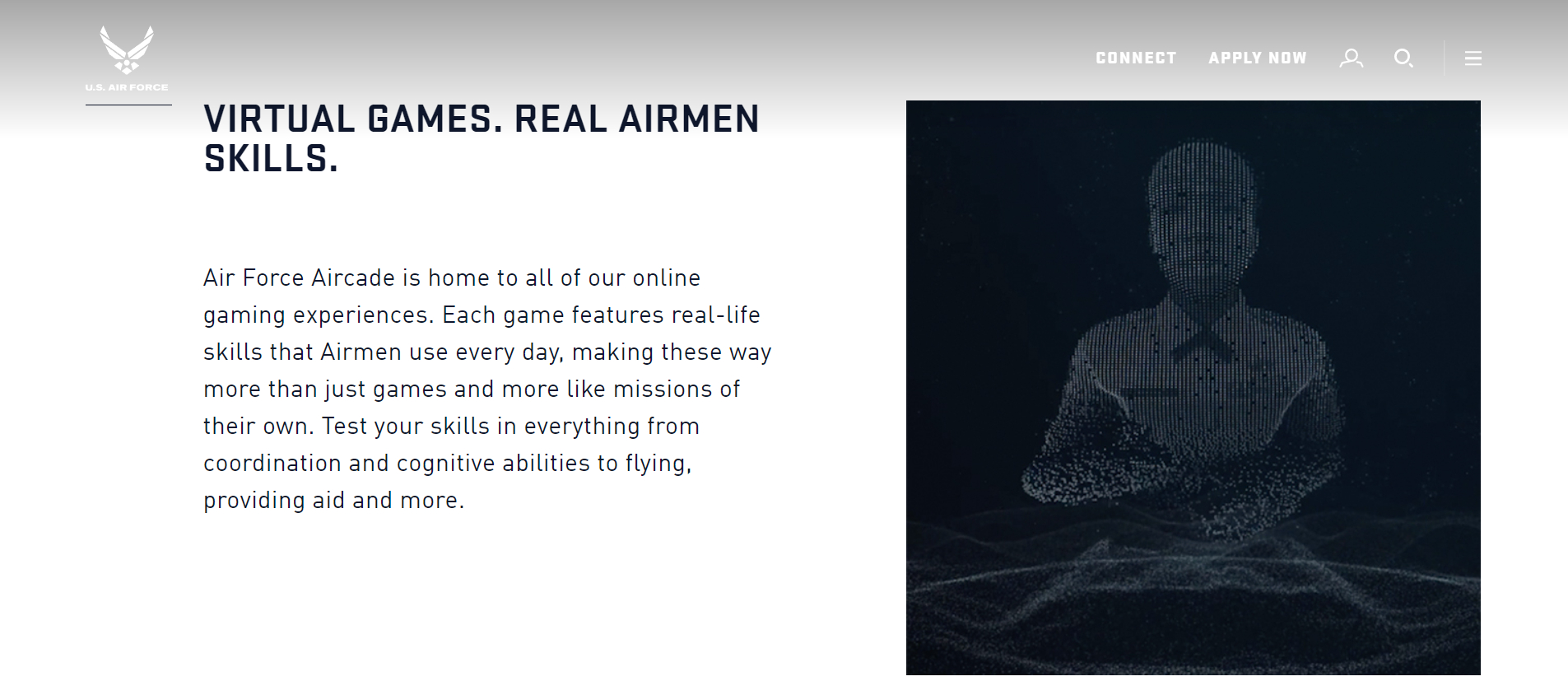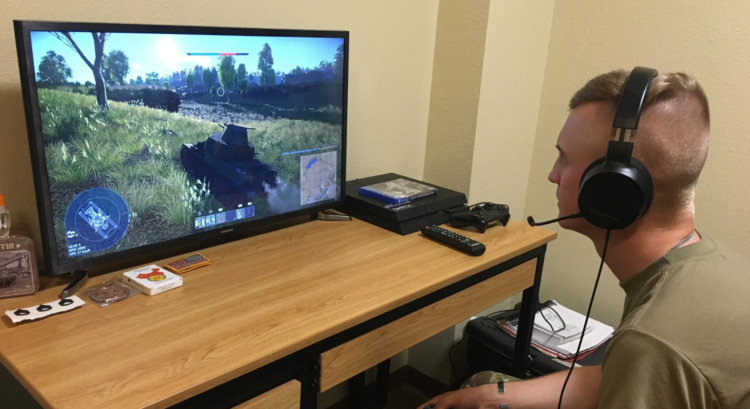To demonstrate this, the Air Force has attracted more foot traffic at a recent San Antonio comic convention than its other conventional recruiting method. Showcasing some of its interactive touch-screen games and F-35 fighter jet simulators, the service branch recruiters have piqued the interest of their target demographic visiting the event.
We're at the @AFSAHQ Professional Education & Development 2022 Conference in San Antonio to share our program and values to attending Airmen, Guardians and senior leaders!
Stop by our booth throughout this week to say hello to our AFSVC team and community ambassadors! pic.twitter.com/ra1nguJy8d
— Air Force Gaming (@AirForceGaming) August 15, 2022
Video Games Could “Trivialize War and Death”
Last year, Air Force recruiters reached out to young Americans by making free simulation games available on app stores. These free games contained recruitment ads. Targeted ads were also executed through online platforms such as Twitter, Facebook, etc.

Moreover, recruiters had launched its Twitch channels to broadcast e-sports competitions between the Soldiers and Sailors—diving deeper into the gaming community. And as you recalled, back in 2020, a New York Democratic representative had strongly opposed this tactic, saying that joining the game-streaming platform wasn’t an educational outreach program but rather an outright influencing of young minds to join the military.
“Right now, currently, children on platforms such as Twitch are bombarded with banner ads that link to recruitment sign-up forms that can be submitted by children as young as 12 years old,” said Alexandria Ocasio-Cortez. “These are not educational outreach programs, but recruitment forms for the military.”
While Ocasio-Cortez failed in her attempts to shut down the military e-sports, not all service branches think the recruitment strategy is “a good idea.”
https://twitter.com/MicahLoewinger/status/1288889747499290624
In a statement released in 2020, the Marine Corps refused to field a team for e-sports, noting that “issues associated with combat are too serious to be gamified in a responsible manner.”
Some veterans shared the same sentiment, like Marine veteran Chris Velasquez who highlighted the concerning access of recruiters to kids.
“The recruiters have access to kids and kids are consuming recruiter content in any and all environment. It can be on their cell phone or in front of their computer in their home, where their guard is down and nobody else is around monitoring what an adult is telling them,” the former Marine said.
Another veteran also pointed out how the use of video games seemingly downplays war and death.
“I believe that video games do trivialize war. They do trivialize death,” Air Force veteran Lisa Ling said in an interview. “If you’re trying to recruit people, or you’re trying to attract people into the military using a video game, you’re attracting them to something that is not real. And, in that way, what happens to these young people, should they experience the realities of war, will be devastating.”
Thomas welcomed all these criticisms and, in turn, explained that their recruitment in the virtual space was created to inspire the new generation to include the military as a future career option.
“We’re not recruiting anybody under the age of 17,” the top recruiter said. “Now, there are a lot of young Americans that we want to inspire through a variety of different ways, so they’re thinking about the military as a career.”
In addition, an active conversation is highly involved in these recruitments.
“Really, what it is, it’s about the active conversation. When they’re 17 or older, we will get that conversation in earnest started about how you actually come and what steps you take to join the United States Air Force or the United States Space Force or any other service,” he added. “Under 17, we’re just not having those conversations. It’s not the time to do it. It’s not appropriate.”
Gen Z: The Most Skepticism of Any Generation
With the effects of Covid lockdown continuing to wear off coupled with labor and economic issues, this year is, so far, the toughest and lowest recruiting period for the military yet in years. Furthermore, among the most significant factors contributing to this decrease is the fact that about three-quarters of young Americans failed to meet the military standard qualifications, such as being physically unfit, having no high school diploma, and having a tainted record. Not to mention the shrinking armed forces’ influence within the family. PBS reported that from the 40 percent stats in 1995 of having a parent who had served, it fell to 15 percent in 2017.
https://twitter.com/_3131313/status/1539402501920903172
Another issue that added to this gap is that Gen Z has become more skeptical than previous generations, which was evident in an April viral TikTok that showed college students from a state university in Indiana “mocking a mass email from Army recruiters,” PBS stated, with some “criticizing US foreign policy.”
According to a March national survey, 73 percent of Gen Z claimed to be familiar with the Army. The data, however, revealed that the demographic had a limited understanding of the service and its capability to meet their needs. It also showed that only 51 percent of Gen Z were aware that the Army allows time for recreation and hobbies and that soldiers, like any other profession, have a work-life balance and a fair amount of benefits—this last bit even came as a shocker to some of the survey participants.










COMMENTS